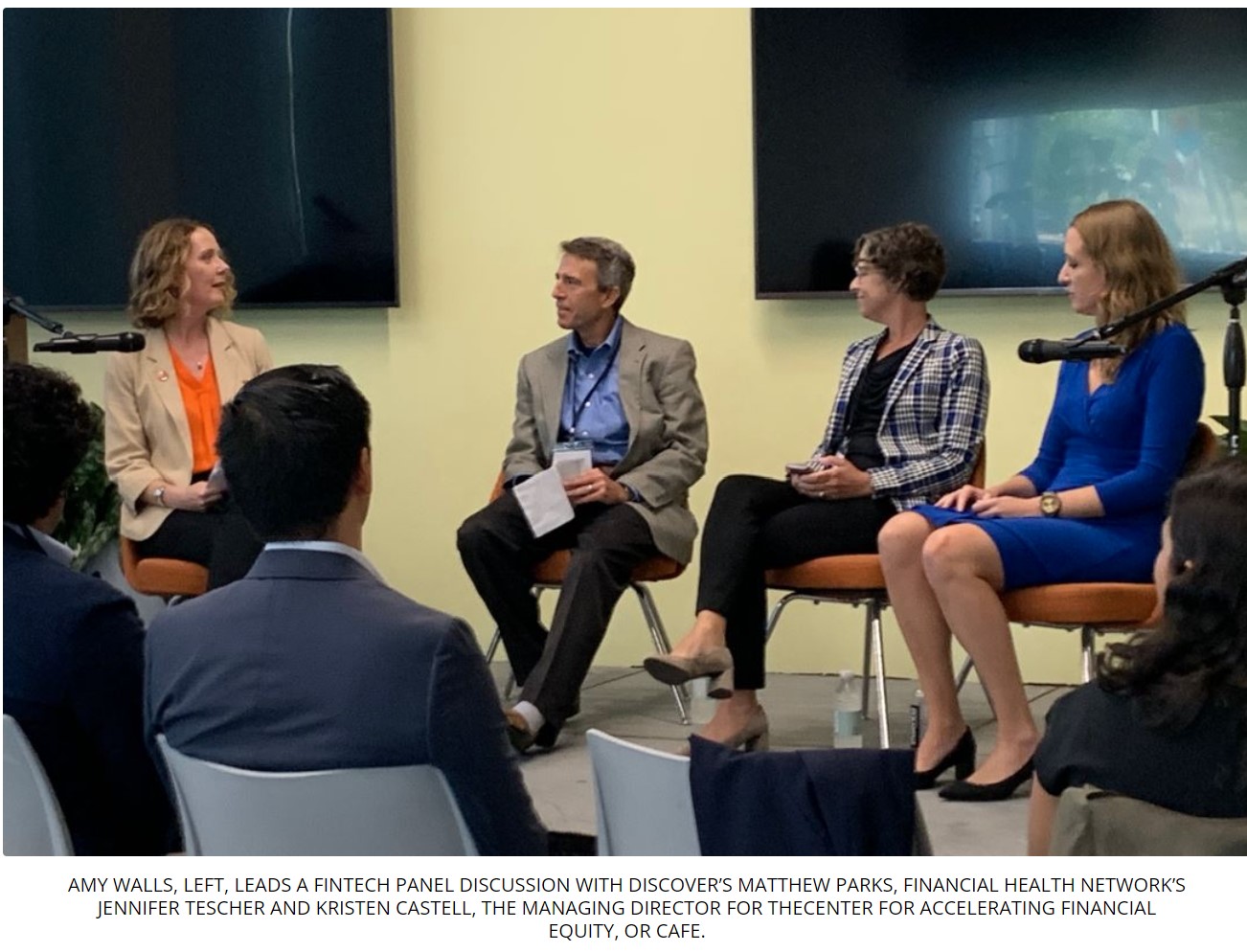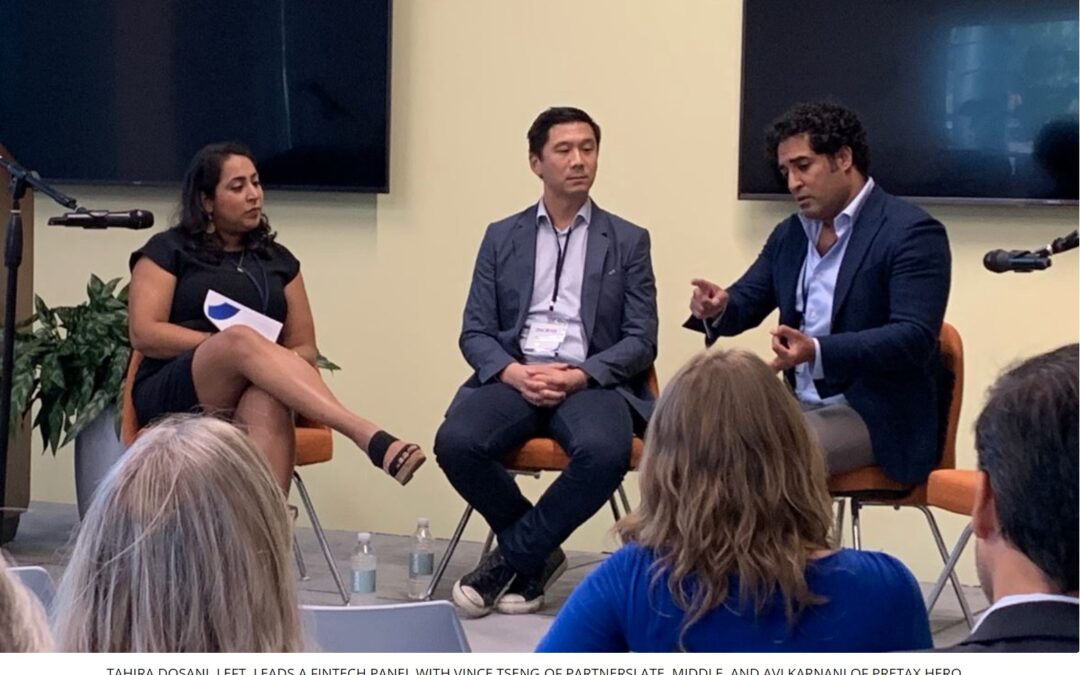UD FinTech Hub welcomes new Discover Bank fund for Delaware
September 19, 2023. By: Betsy Price.
One company helps small start-up food companies find additional investment to fill unexpectedly huge orders from a place like Costco or Whole Foods.
One company helps renovation companies get paid faster when they’re helping people get back into homes or businesses that have been damaged in some disaster.
One company helps employers make sure more of their employees’ wages stay in their pockets by handling pretax benefits for them.
All three are examples of financial technology at work, and owners of all three were in Delaware Monday to celebrate Discover Bank’s new $36 million Financial Health Improvement Fund at the University of Delaware‘s Star Campus FinTech Innovation Hub.
The Discover Fund, designed to benefit Delaware businesess, isn’t focused on the kind of health that takes people to doctors, hospitals and 5Ks.
It’s meant to help businesses that provide social and economic development, particularly for those in low-resource communities and with lower-wage jobs that don’t necessarily offer any kind of financial training.

Read the Article on Town Square Delaware
The food company, for example, needed someone to take a chance on funding them to fill a big order that could help the company grow, and Vince Tseng’s PartnerSlate helps connect food and beverage companies with financial capital and manufacturers.
Emerging food companies are a trillion-dollar industry who are changing the aisles in supermarkets, Tseng said, but there are problems getting there.
“One is that it’s incredibly difficult to find the right manufacturer that has the right combination of packaging and processing equipment. And the second problem is access to capital,” he said. “That is really kind of the biggest hurdle for many of these startups to reach that next level of scale to kind of grow to become a household name.”
Renovators were sometimes waiting for more than a year to get paid for a job, even though they had to pay up front for supplies before the work was done.
One of the many reasons that happens is that checks written for repairs by insurance companies often are written to both the property owner and a bank that holds a mortgage, said Tom McGrath, owner of iink Payments, which last month handled $72 million in claims. Red tape costs time, he said.
His company, focused largely on Florida, helps smooth that process and move the money faster.
“We sit between three of the largest industries in the United States, which is insurance, banking and construction,” McGrath said.
Many companies whose employees could benefit from pre-tax or other programs don’t have the human resources staff to offer the programs, said Avi Karnani, CEO of Pretax Hero Inc., which he says can put an extra week of pay into hourly workers’ pickets at no cost to their employers.
Many of the workers that Pretax Hero focuses on don’t come to offices and sit there all day. They are working in factories or industries that require a lot of labor. It’s hard for them to focus on any kind of open enrollment for benefits and many have no financial training.
His company frequently communicates with workers via texting, he said.
Power of FinTech
All of those are examples of helping people thrive, said Matthew Parks, vice president of community reinvestment and retail banking at Discover Bank who helped create the new fund.
“I think financial stability and financial access has a huge implication on somebody’s well being,” Park said, referring to the name of the fund.
These kinds of programs may not have been possible a decade ago, before the widespread usage of smart phones and applications which linked people, companies and programs, he agreed.
A roomful of financial technology executives and investors listened to Parks and other extol the benefits of fintech, a name that Jennifer Tescher of the Financial Health Network said hadn’t even been coined when she got into the arena.
MORE BUSINESS NEWS: Businesses oppose proposed law to make them pay for shift changes
That kind of technology is one of the focuses of the FinTech Innovation Hub, where business, academic and other leaders will be gathered to create a kind of synergy that spins off businesses.
“The idea was to create a center of excellence, to tackle the enormous problems that face the low to moderate income population or underserved communities, in their challenge in financial health and equity,” said J. Michael Bowman, director of the Small Business Development Center, which has offices in the hub.
The FinTech Innovation Hub is a 100,000-square-foot building with six floors that ultimately will cost about $50 million.
UD’s Lerner College of Business and Economics will have several offices there, he said, including some focused on analytics, cybersecurity, artificial intelligence, machine learning, virtual reality and media labs.

